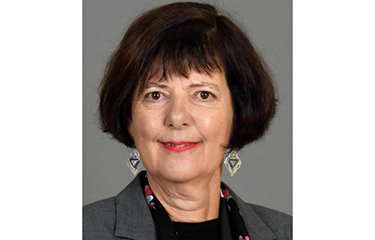South Africa's fisheries minister wants court to review fishing rights process

South Africa Fisheries Minister Barbara Creecy has approached the country’s high court to have the process of awarding fishing rights to small-scale fishers in the fishing hub of Western Cape reviewed and set aside.
The decision is based on legal advice after an internal audit process the fisheries department launched in 2019 found the process has been “wholly inadequate.” Some of the errors exposed during the audit include “problems such as the inaccurate capturing of information and the incorrect adjudication of applications by community panels.”
“There was inconsistent application of criteria between communities, an incorrect and incoherent application and appeals process, as well as incomplete and inaccurate data, including lost applications,” the ministry said.
Small-scale fishing communities in the Western Cape had lodged numerous complaints on the unfairness and lack of transparency in the entire fishing rights award process.
Should the high court entertain the minister’s application, the Department of Fisheries intends to ensure minimum negative impact on the small-scale fishing communities by fast-tracking the filing of the suit and also “prioritizing the new verification process and conducting it as swiftly as possible,” it said.
Current fishing access by communities, as well, will be maintained until the process is completed, the department said.
“Should the court application be successful, originally registered individuals will have an opportunity to submit new information to support their original applications and thus ensure a process that is applied fairly and consistently to all communities,” the fisheries department added.
The process is likely to cause up to one-year delay in the granting of rights for some communities, but Creecy said “the consequences of not approaching the court are potentially even more disastrous and a new process is the only way to ensure that rights are allocated fairly.”
Although organizations fighting for the rights of small-scale fishers support the minister’s decision, their concern is the long period the matter is likely to take before it is fully resolved.
“This is going to be hard on small-scale fishers who have been waiting since the promulgation of the policy in 2012,” said a statement by Masifundise, a community-based organization working with South Africa’s small-scale fishing communities.
“Communities are struggling to put food on the table, which has been made worse by COVID-19 as some small-scale fishers have died with nothing to pass on to their families that they leave behind,” Masifundise Director Naseegh Jaffer, Program Manager Carmen Mannarino, and Coastal Program Coordinator Michelle Joshua said. “It is also important to note that although it is positive that this is happening in the Western Cape, the Audit findings clearly point at fundamental flaws in the department’s verification process, not only in Western Cape, but also in in Northern Cape, Eastern Cape, and KwaZulu-Natal.”
South Africa United Fishing Front (SAUF), which represents the small-scale fishers, welcomed the minister’s move and termed the original small scale fishing rights award process “critically flawed.”
“The process resulted in questionable outcomes which could have a devastating impact on livelihoods of bonafide fishers and fishing communities,” SAUFF Chairperson Pedro Garcia said.
Although SAUFF supports the minister’s decision to have the entire fishing rights award process in Western Cape reviewed by the high court, it is concerned on the lack of clarity on “who will be eligible to apply should the court approve a complete overhaul of the registration process.”
Photo courtesy of South Africa's Department of Environment, Forestry, and Fisheries





Share